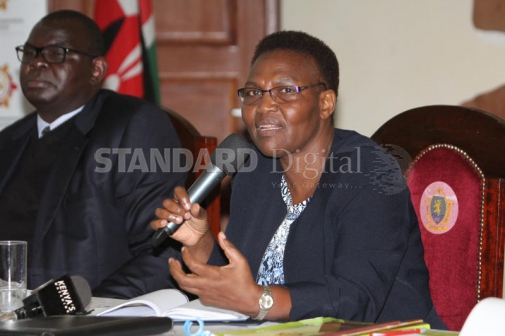×
The Standard e-Paper
Home To Bold Columnists

The Salaries and Remuneration Commission (SRC) Friday released a new grading and pay structure for State corporation chiefs where the highest paid chief executive officer will not earn more than Sh1 million.
Under the structure, which has used Paterson grading system, CEOs are graded between E, which is the highest grade, and D1, the lowest, while state corporations have been categorised as service and regulatory, and commercial.